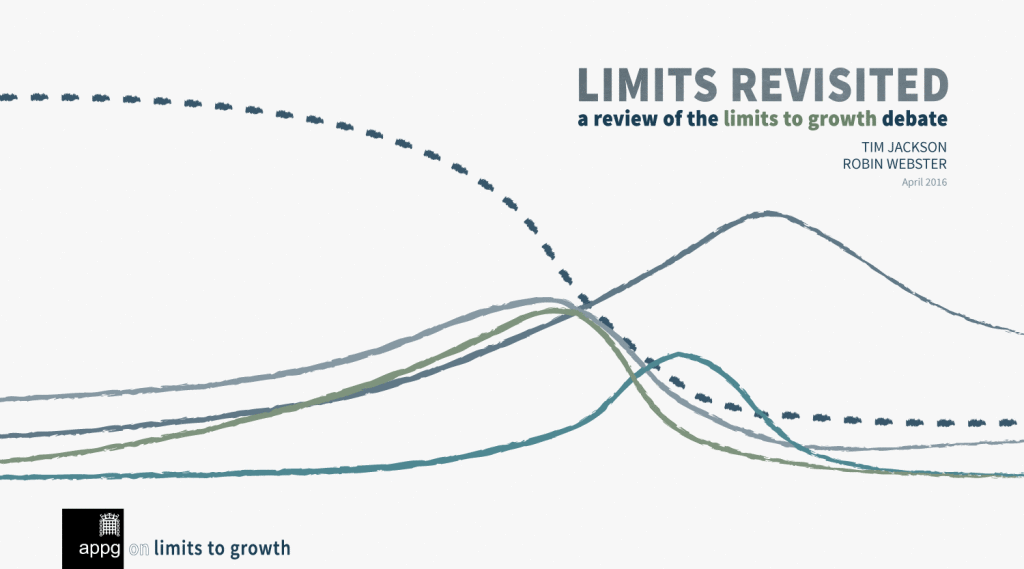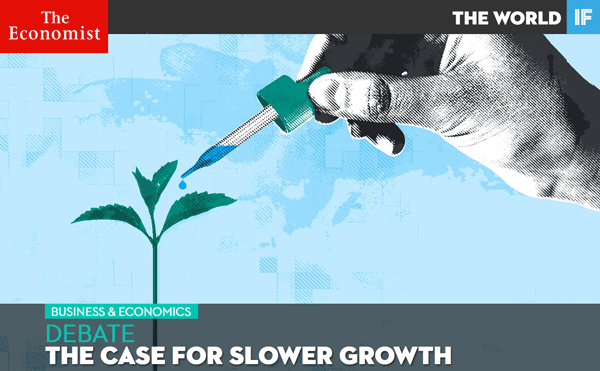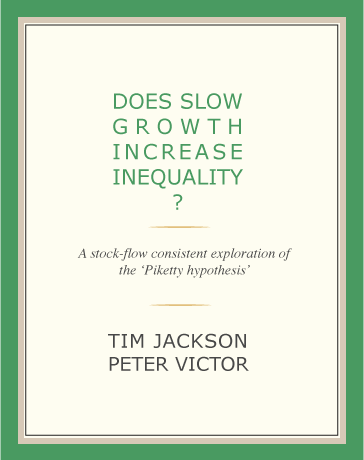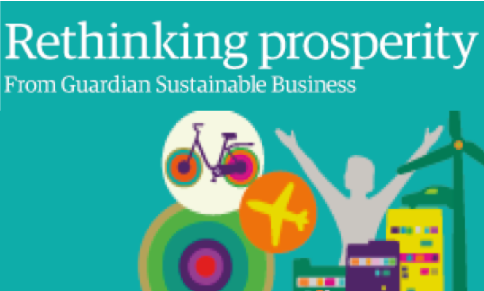blog 54 results
-
How to kick the growth addiction | Tim Jackson in conversation with Allen White
Endless economic growth, long the rallying cry of the conventional paradigm, endangers our future. Ecological economist Tim Jackson, CUSP Director and author of Prosperity Without Growth, explores the need to envision a post-growth economy with Allen White, Senior Fellow at the Tellus Institute.Investing in the economy of tomorrow
Savings and investment represent a fundamentally prudential aspect of human behaviour. They embody a commitment to a shared future. In this blog, Tim Jackson looks at what tomorrow’s economy will be like and what role investment plays in it.An economy that works
Prosperity isn’t just about earning more and having more, it consists in our ability to participate meaningfully in the life of society. A vital element, Tim Jackson argues, that has gone missing for ordinary people over recent decades. We must question the fundamental structures behind our economies before they will work for everyone. (This blog is posted on the CUSP website).Limits Revisited
To coincide with the launch of a new All Party Parliamentary Group on Limits to Growth, Tim Jackson discusses the continuing relevance of the Club of Rome's groundbreaking report in today's context and introduces Limits Revisited, a new review of the debate, co-written with environmental writer Robin Webster. This blog first appeared on the CUSP website.Design for life: a commentary on Peter Sterling’s ‘why we consume’
Having spent a delightful half hour stimulating my pleasure circuits with Peter Sterling’s addictively insightful essay—and a further (slightly less delightful) two hours trying to free up some mapping circuits in my overcrowded brain to understand a bit more about neuroscience—I have come to the conclusion that Peter Sterling is a very wicked man.Towards a sustainable prosperity
Prosperity matters. A prosperous society is concerned not only with income and financial wealth, but also with the health and wellbeing of its citizens, with their access to good quality education, and with their prospects for decent and rewarding work. Prosperity enables basic individual rights and freedoms. But it must also deliver the ability for people to participate meaningfully in common projects. Ultimately, prosperity must offer society a credible and inclusive vision of social progress.Materiality and spiritually in Marx, Darwin and Malthus
I am not quite sure why discussions about Marx elicit such eloquence, but they invariably do. Perhaps it is because, at its best, Marx’s own writing had the same quality. At any rate, John Bellamy Foster’s excellent essay, along with the ensuing discussion, has been no exception. I have been struck throughout by the quality of the writing and the intensity of the arguments: careful thought, lucid prose, and occasional outbursts of pure emotion. Marx clearly still has the power to elicit strong feelings—on both sides of the debate. The sheer level of engagement is a credit both to Foster and to the influence Marx still has.The Mindful Consumer | Paper
This paper forms part of the exploration of the topic of consumption and wellbeing, in which earlier consultation and deliberation identified a key question of how societies might reduce or replace the role of consumption and consumerism in supporting human identity. Here, Alison Armstrong and Tim Jackson bring their cutting-edge research and deep experience in sustainable consumption to bear on the topic.ESRC blog: The case for sustainable prosperity
:: Why did you pursue an academic career? :: I am an ‘accidental academic’, starting my professional life working on a voluntary (and then freelance) basis doing research for environmental organisations like Friends of the Earth and Greenpeace, places where sustainability issues were being taken most seriously. At an international symposium in 1992, I met Professor Roland Clift, who later persuaded me to apply for a research fellowship at the University of Surrey. The rest, as they say, is academic history – although I still maintain strong links with civil society organisations and policymakers.If the rich world aimed for minimal growth, would it be a disaster or a blessing?
“ANYONE who believes that exponential growth can go on forever in a finite world is either a madman or an economist,” remarked (the economist) Kenneth Boulding. John Stuart Mill devoted an entire chapter of his “Principles of Political Economy” to the concept of the “stationary state”—a state that he believed would be “on the whole, a very considerable improvement on our present condition”.Economics for a full world
I remember vividly the first time I came across Herman Daly’s work. It was in a crowded upstairs meeting room in London sometime in 1989 during a presentation on the relative costs of different carbon abatement options. Among the slides on display—acetates and overhead projectors in those days—was one showing Herman Daly and John Cobb’s Index of Sustainable Economic Welfare alongside the GDP. It fascinated me not simply because it illustrated so clearly Daly’s concept of uneconomic growth, but also because it proved to me that it was possible to think in economic terms about economics without falling prey to common ecological follies such as the idea that economic growth is unequivocally good (or indeed even possible in perpetuity on a finite planet).Growth is not the answer to inequality
Wouldn’t it be wonderful if our politicians focused on things that matter, like the kind of society we want to live in, instead of squabbling over TV debates and “empty chairs”? Why couldn’t they be a bit more like actor Michael Sheen, for instance, whose barnstorming defence of public values went viral after he turned out for a rain-soaked St David’s Day rally in support of the NHS?The dilemma of growth: prosperity vs economic expansion
Rethinking prosperity is a vital task because our prevailing vision of the good life – and the economics intended to deliver it – have both come badly unstuck. Financial markets are unstable; inequality is rising; and despite the 500,000 or so people who took to the streets before Tuesday’s UN Climate Summit in New York, tackling climate change still faces a “frustrating lack of progress”. If this were not enough, the proposition that more is always better has signally failed to deliver, particularly in the affluent west. But questioning these values is deemed to be the act of lunatics, idealists and revolutionaries.New economic model needed not relentless consumer demand
It’s four years since my book, Prosperity without Growth, first appeared in English but the world already seems like a different place. One of the most obvious differences is that the conventional vision of social progress as a paradise of endless growth has come under increasing scrutiny: not just from those who doubt its sustainability or question its desirability, but also from those wondering where on earth economic growth is going to come from in the wake of the worst financial crisis in 80 years. The question that once could not be asked now regularly haunts the media: is it conceivable that economic growth will not after all deliver lasting prosperity?














